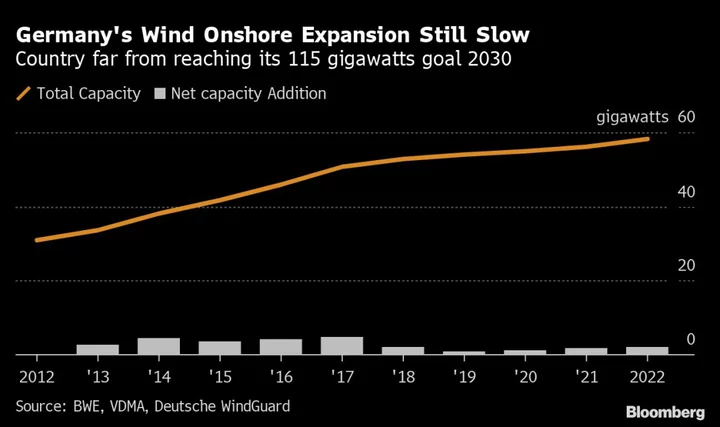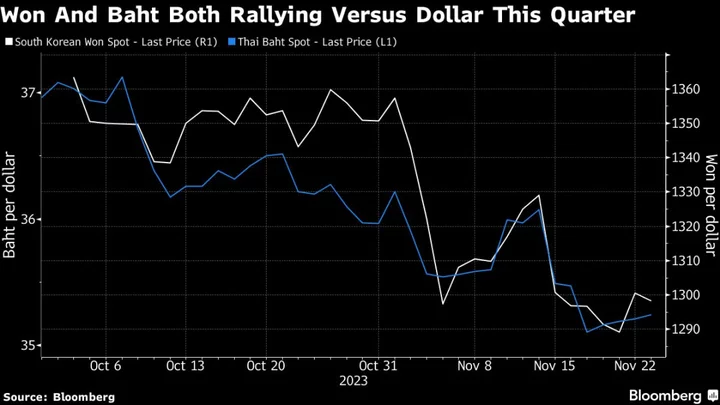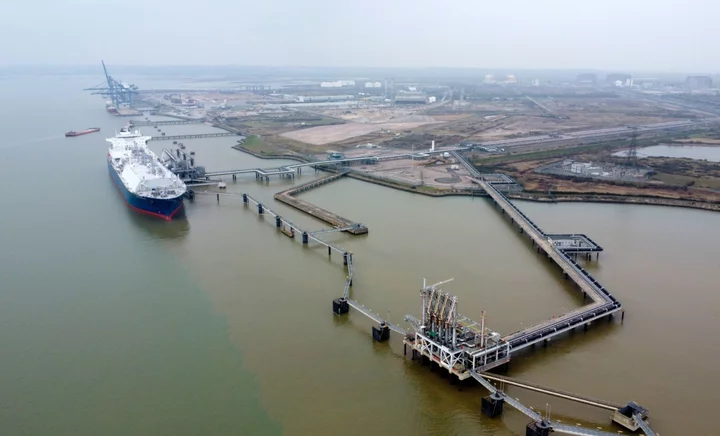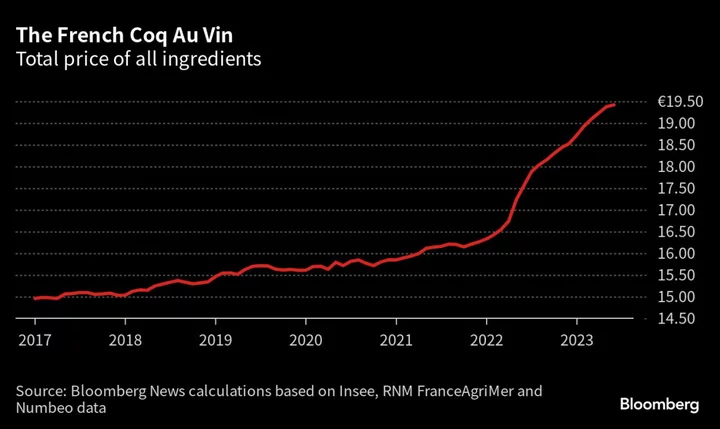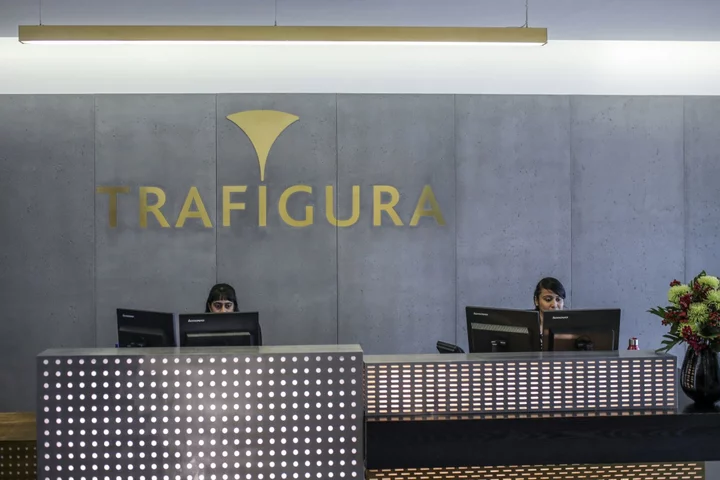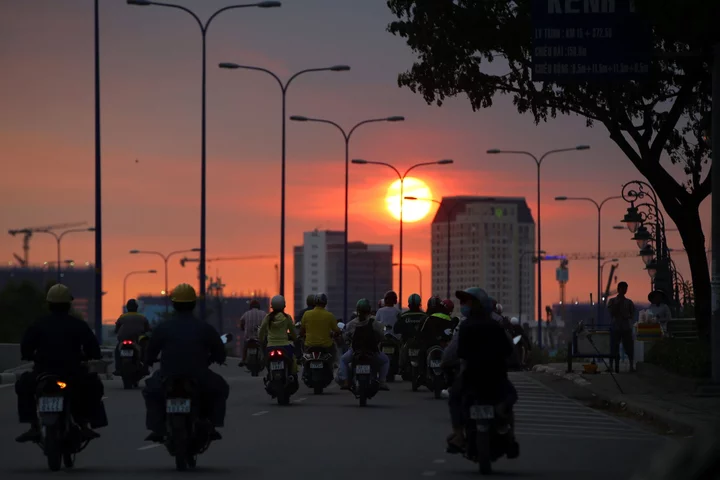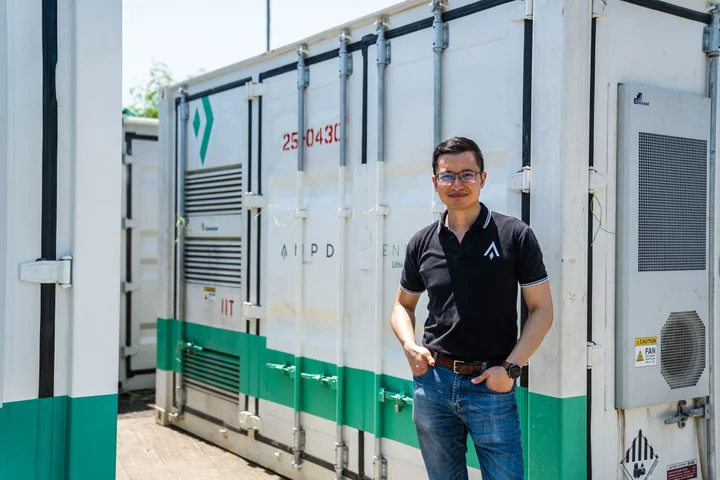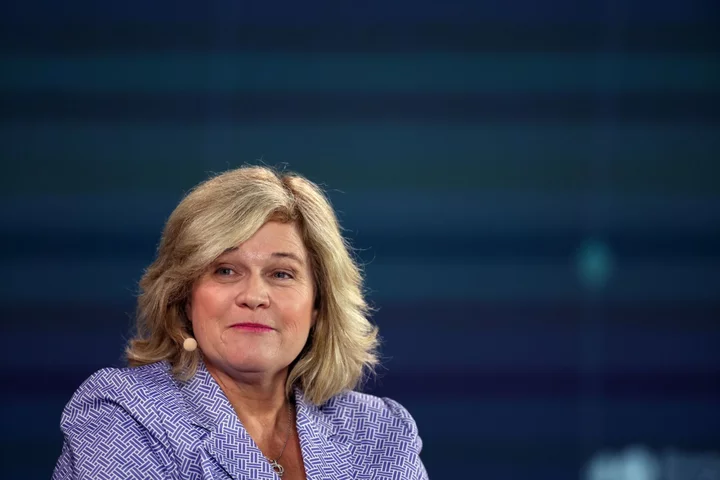Germany’s autobahn is known for its limitless speed. But its aging infrastructure isn’t up to the task of carrying the massive windmill towers and rotor blades needed for the country’s energy transition, and developers complain the highways are now slowing progress.
Earlier this year, German haulers made a tedious detour transporting rotor blades from the port of Bremen to an onshore wind park in the north of the country. Instead of a highway route that normally takes about three hours, narrow curves and size restrictions forced them to spend three nights traveling triple the distance on alternative roads.
Wind turbine producers say such situations are becoming a regular occurrence, warning that Germany’s autobahn – once hailed for its efficiency and unlimited speed – has turned into a massive roadblock for the country’s climate goals. About six new windmills have to be built every day for Germany to meet its aim of generating 80% of electricity from clean sources by 2030, requiring roughly 60,000 road transports per year.
If turbines cannot be erected as planned, Germany’s green transition will be “on the brink of collapse,” more than 30 business associations warned in a recent statement.
The problem is that the country’s highway network was largely built in the decades following World War II, and its infrastructure isn’t cut out for carrying huge rotor blades and steel tower segments, which can be about 35 meters (115 feet) long and weigh 80 metric tons. While that’s likely to be a challenge anywhere, even regular freight transports are facing mounting restrictions in Germany as deteriorating roads and bridges are often closed off to trucks.
“If the delays persist, we run the risk of the energy transition getting stuck on the road,” said Hendrik Peterburs, head of global logistics at Enercon, the wind turbine producer whose blades made the recent lengthy detour from Bremen.
Already in the first half of this year, Enercon had 70 late deliveries related to wind turbines. Each of those delays can cost up to €10,000 ($10,859) for a single rotor blade, Peterburs said, as machinery has to be rented for longer and contractual penalties kick in.
For some producers, the unreliability of the autobahn is leading to severe backlogs. SIAG Tube und Tower GmbH, a Leipzig-based maker of massive steel towers for wind turbines, had to curb output by a third this summer as storage facilities were full and components couldn’t be transported onwards.
The situation is made worse by the wind industry’s trend to build bigger components to make power generation on land and sea more efficient.
Upgrading older wind farms — of which there are about 13,600 in Germany — is also a challenge, with dismantling of used components dropping by 20% last year, according to industry data. Frank Kreimer, director of Hagedorn GmbH logistics, who often takes outdated wind turbines to be recycled, blames the road situation for the drop.
Moving the equipment needed to assemble windmills is also difficult. Logistics specialist Wasel GmbH didn’t get clearance to move a crawler crane recently, which meant it was stranded for eight weeks. Director Matthias Wasel says he regularly has to add detours of about 70 kilometers to his journeys in order to use the only bridge that allows him to cross the Rhine river with his heavy vehicles.
Finding Solutions
Solving the issues could take many years and cost billions in infrastructure investments. The government has pledged to spend €12.8 billion on improving cross-regional roads next year alone amid expectations for an increase in truck traffic. But companies say that some other fixes in the near-term could help ease producers’ strains, for instance by speeding up permissions.
Approval times for transports of large wind turbine pieces extend up to three months, said Andreas Petzold, a director at wind turbine manufacturer Nordex.
“Inefficient processes, a lack of transparency and weaknesses in the communication and coordination of the authorities involved lead to massive delays, as well as considerable additional costs,” he said.
Some 15,000 permits have been pending in the last weeks. Germany’s transport ministry says a new digital tool is helping to work off the backlog, and a new nation-wide system will further speed up the process.
However, final approvals are granted by local authorities in Germany’s 16 federal states, a spokesperson said. The economy ministry said further measures to ease the logistics issues have to be implemented “swiftly”.
In other EU countries such as the Netherlands or Sweden, such processes are completely digitized, and permits are given in up to four days, according to Enercon’s Peterburs. In France, heavy-load transports are banned from private highways, said Petzold from Nordex, but require only one permission for the entire country, making the process easier than in Germany. He says anywhere in Europe it’s easier to transport wind components than there.
While onshore wind developers are particularly affected by Germany’s highway impairments — given the size of their components — other industries are affected too.
Grid operator Tennet TSO — which needs to build 11,000 kilometers of electricity lines, poles and converters throughout the country to connect renewable plants — says the road situation complicates the grid roll-out.
In the east of the country, ship propeller maker Mecklenburger Metallguss GmbH struggles to use roads to get its oversize goods to customers. It once faced such severe delays when delivering a new submarine propeller to Germany’s marines that the customer had to confront road authorities, highlighting its need to meet NATO obligations.
“Currently there are significant delays at about a third of all construction sites,” says Bärbel Heidebroek, president of the German Wind Energy Association BWE. “The problems must be solved now, before the entire system grinds to a halt.”

